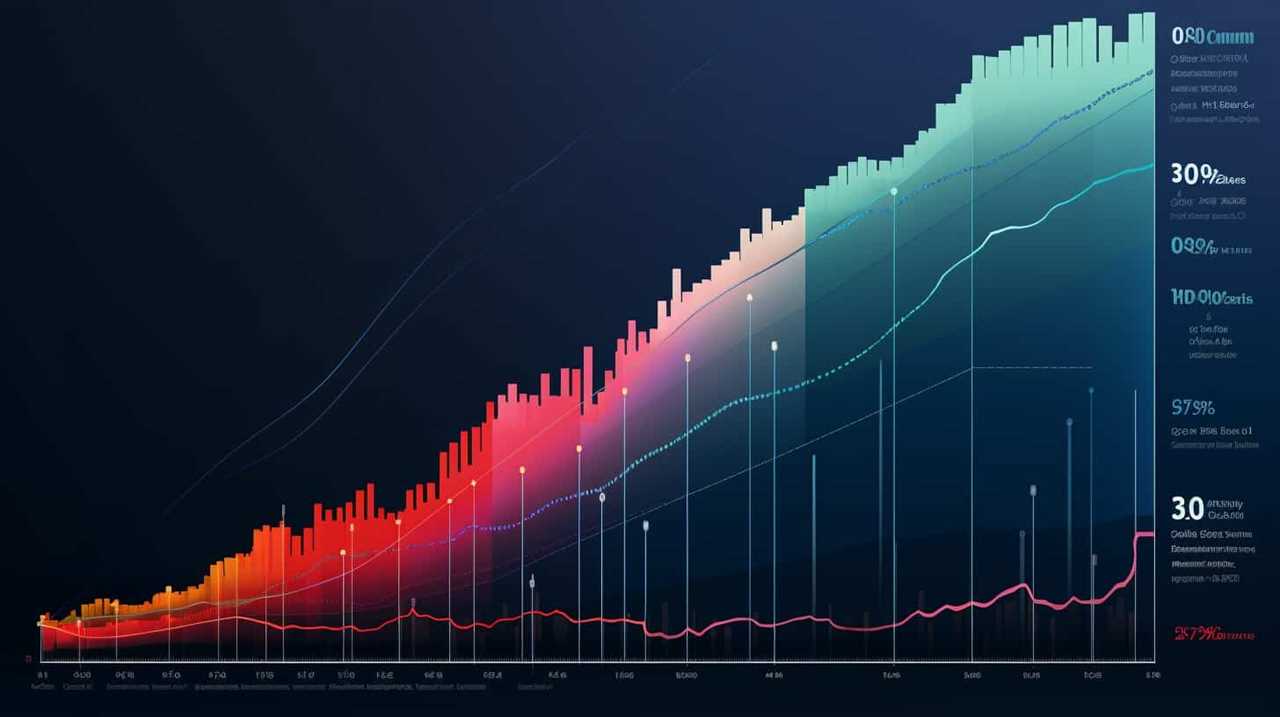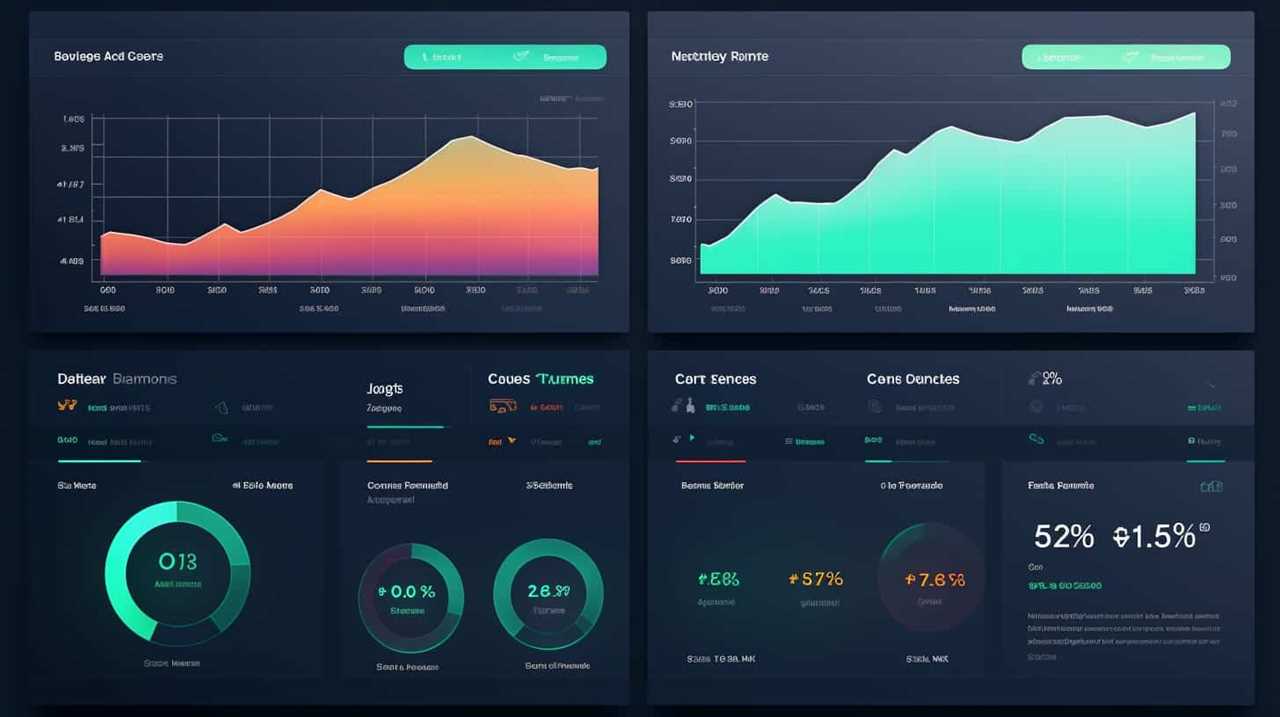Are you ready to become an expert in Technical SEO? We’ve got all the resources you need.
In this article, we’ll dive into the world of Technical SEO, exploring its importance, key elements, and common issues.
We’ll also share the best practices and tools to analyze your Technical SEO performance.
Get ready to enhance your website’s visibility and ranking with our concise, data-driven guide.

Let’s embark on this journey together and conquer the realm of Technical SEO.
Key Takeaways
- Technical SEO enhances website performance and search engine visibility.
- It improves user experience and reduces bounce rates.
- Technical SEO increases conversions and rankings in search engine results.
- It optimizes website structure and URL structures.
Importance of Technical SEO
The importance of Technical SEO lies in its ability to enhance website performance and increase search engine visibility. Implementing technical SEO best practices can lead to numerous benefits for your website.
Firstly, it improves website speed and performance, which not only enhances user experience but also reduces bounce rates and increases conversions.
Additionally, technical SEO ensures that search engine crawlers can easily access and understand your website’s content, leading to better indexing and higher rankings in search engine results.

To improve technical SEO, focus on optimizing website structure, implementing proper URL structures, optimizing metadata, fixing broken links, and improving website load times.
Regularly monitoring and analyzing website performance data, such as crawl errors and page load times, is crucial for identifying and addressing technical SEO issues.
Key Elements of Technical SEO
When implementing technical SEO, we focus on optimizing key elements to improve website performance and search engine visibility. Here are three important elements to consider when developing your technical SEO strategies:
- Website Speed: Ensuring that your website loads quickly is crucial for both user experience and search engine rankings. Slow-loading websites often lead to high bounce rates and lower search engine visibility.
- Mobile Optimization: With the majority of internet users accessing websites through mobile devices, it’s essential to optimize your website for mobile devices. This includes responsive design, mobile-friendly navigation, and fast loading times on mobile devices.
- Site Structure: A well-organized site structure makes it easier for search engines to crawl and index your website. This includes using descriptive URLs, creating a logical hierarchy of pages, and implementing internal linking strategies.
By focusing on these key elements of technical SEO, you can ensure that your website is optimized for better performance and improved search engine visibility.

Now, let’s discuss some common technical SEO issues.
Common Technical SEO Issues
Now let’s delve into some of the common technical SEO issues that can hinder website performance and search engine visibility. One of the key aspects of website optimization is identifying and resolving crawl errors. These errors occur when search engine bots encounter difficulties in accessing and understanding your website’s content. By addressing crawl errors promptly, you can ensure that your website is properly indexed and ranked by search engines. To help you understand the impact of crawl errors, take a look at the table below:
| Crawl Error | Description |
|---|---|
| 404 Not Found | Page not found error, often due to broken links or deleted pages |
| 500 Internal Server Error | Server-side issue preventing the page from loading |
| 503 Service Unavailable | Website temporarily unavailable due to server overload or maintenance |
| Robots.txt Blockage | Search engines are prevented from crawling certain pages by the robots.txt file |
| Redirect Chains | Multiple redirects leading to slow page load times and poor user experience |
Best Practices for Technical SEO
To effectively implement technical SEO, it’s important to follow best practices that optimize website performance and enhance search engine visibility. Here are three key best practices to consider:
- Differentiate Technical SEO from On-Page SEO:
While on-page SEO focuses on optimizing individual web pages for search engines, technical SEO deals with website infrastructure and backend elements. It includes tasks like improving site speed, ensuring proper indexing, and implementing structured data. - Technical SEO for E-commerce Websites:
E-commerce websites have unique technical SEO requirements. It’s crucial to optimize product pages, implement schema markup for products, and create XML sitemaps. Additionally, optimizing for mobile, improving site speed, and ensuring secure transactions are essential for e-commerce success. - Regular Monitoring and Auditing:
Technical SEO is an ongoing process that requires constant monitoring and auditing. Regularly checking for crawl errors, broken links, duplicate content, and site performance issues is crucial for maintaining a healthy website and improving search rankings.
Tools for Analyzing Technical SEO Performance
As we continue exploring the best practices for technical SEO, it’s essential to utilize various tools for analyzing the performance of your website’s technical SEO.

Technical SEO tools are crucial for gaining insights into your website’s overall health and identifying areas that need improvement. These tools provide valuable data and metrics, allowing you to measure the effectiveness of your technical SEO efforts.
Some popular technical SEO analysis techniques include website audits, keyword research, backlink analysis, and page speed analysis. These tools help you identify issues such as broken links, duplicate content, and slow-loading pages that can negatively impact your website’s performance in search engine rankings.
Frequently Asked Questions
How Does Technical SEO Differ From Other Types of SEO, Such as On-Page or Off-Page SEO?
When it comes to SEO, there are various types to consider, such as on-page and off-page SEO. However, technical SEO sets itself apart by focusing on the technical aspects of website optimization.
It involves optimizing the backend of a website to improve its visibility and performance on search engines. Technical SEO ensures that search engines can crawl and index a website effectively, which is crucial for ranking higher in search results.

Understanding these differences and the importance of technical SEO is essential for mastering website optimization.
Can Technical SEO Alone Improve Website Rankings in Search Engine Results?
Improving website rankings in search engine results requires more than just technical SEO alone. While technical SEO plays a crucial role in optimizing a website’s structure and performance, other factors like on-page and off-page SEO also contribute to higher rankings.
However, technical SEO is still essential as it ensures that search engines can crawl and index a website effectively. It involves aspects such as schema markup, which enhances website visibility, and website security, which impacts search engine rankings.
Are There Any Specific Technical SEO Strategies That Work Best for E-Commerce Websites?
When it comes to technical SEO strategies for e-commerce websites, there are a few that work particularly well.

First, optimizing site speed and mobile-friendliness is crucial for user experience and search engine rankings.
Additionally, implementing structured data markup helps search engines better understand your content.
Lastly, conducting regular website audits to identify and fix any technical issues is essential.
However, it’s important to note that technical SEO for non e-commerce websites and local businesses may require different strategies to achieve optimal results.

What Is the Role of Website Load Speed in Technical SEO, and How Can It Be Optimized?
Website load speed optimization is a crucial aspect of technical SEO. It directly impacts user experience and search engine rankings.
To optimize website load speed, we can leverage techniques such as compressing images, minifying CSS and JavaScript, and utilizing browser caching. These optimizations help reduce page load time, ensuring a seamless user experience and improving site performance.
Are There Any Technical SEO Considerations That Are Specific to Mobile Websites or Mobile-First Indexing?
When it comes to mobile website optimization and the challenges of mobile-first indexing, there are indeed specific technical SEO considerations to keep in mind.
Ensuring that your mobile site loads quickly, is responsive, and has a mobile-friendly design are all crucial factors.

Additionally, optimizing for mobile search intent and implementing structured data for mobile devices can greatly improve your site’s visibility and rankings.
Conclusion
In conclusion, technical SEO plays a crucial role in optimizing websites for search engines and improving their overall performance. By addressing common technical issues and following best practices, businesses can ensure that their websites are user-friendly, fast, and easily accessible to both search engines and users.
Remember, ‘a stitch in time saves nine,’ so investing in technical SEO early on can prevent bigger problems and drive better organic search results in the long run.










